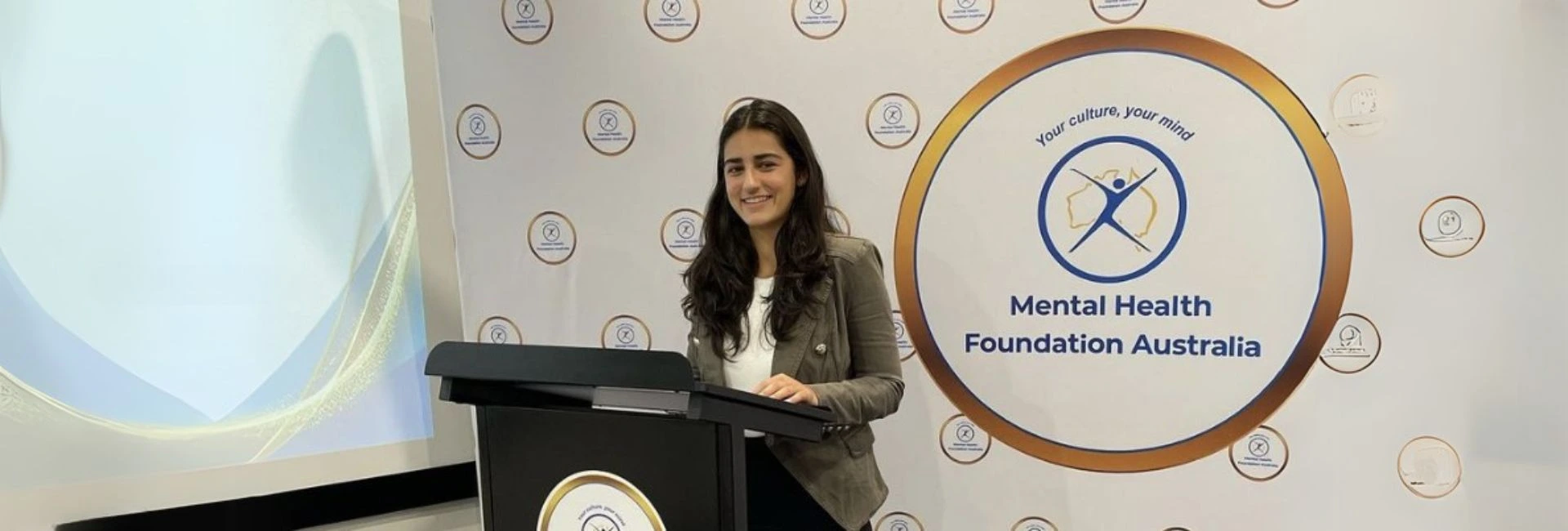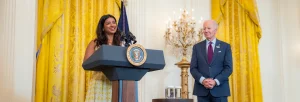At just 18, Australia based Rhea Werner is proving that age is no barrier to impact. With roots spanning Indian, Malaysian, and German heritage, she has channelled her multicultural perspective into powerful advocacy for mental health and eating disorder awareness. Rhea’s journey is one of courage, empathy, and vision—turning personal insights into transformative global initiatives that prioritize cultural inclusivity and sustainability.
From leading groundbreaking youth campaigns to presenting her ideas on international platforms, Rhea has emerged as a trailblazer. Her efforts have earned her some of the world’s most prestigious accolades: the 2024 Diana Award, the 2023 Most Influential Asian-Australian title, and the 2022 Australia Day Young Citizen of the Year honour. Recently she was also selected to attend the Yale Young Global Scholars Program as one of four Australians out of 600 participants.
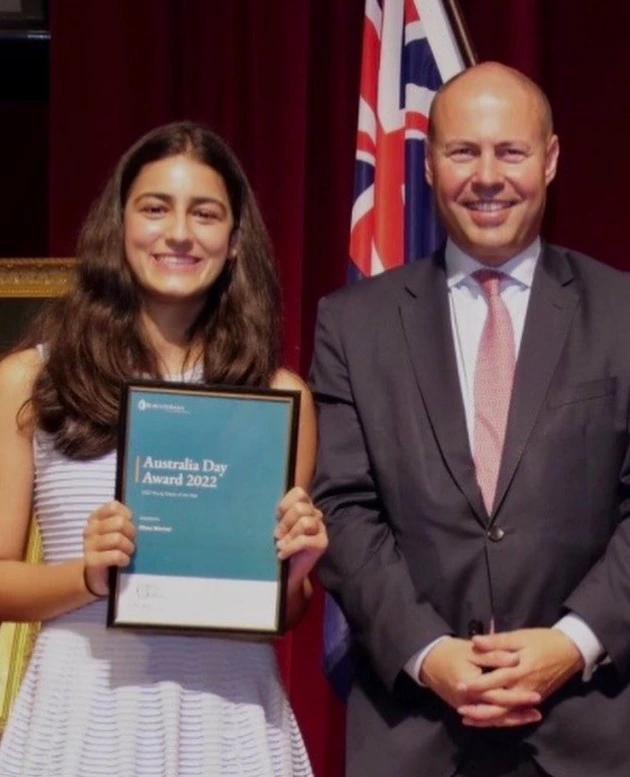
Rhea with the Australia Day Award 2022
Now poised to begin her next chapter at Harvard University—where she will major in economics and philosophy while pursuing a master’s in Asian and Middle Eastern Studies—Rhea remains dedicated to integrating diversity into healthcare and education systems. With recognition from esteemed institutions like the Australian Olympic Committee, she is serving as an inspiration for young changemakers.
The catalyst: A lockdown realization
The 262-day Melbourne lockdown—the longest in the world—served as a turning point in Rhea’s life. “I witnessed firsthand how my peers struggled immensely with eating disorders, seemingly fading behind their screens as the isolation took its toll,” she tells Global Indian. What struck her most was the prolonged wait for treatment—up to four months—despite eating disorders having the highest mortality rate of any mental health condition.
This realization spurred her to action. “It was heartbreaking to see how our public health system was failing young people, focusing solely on retrospective treatment rather than proactive prevention. This gap in care made me realize the urgent need for systemic change,” Rhea explains. Thus began her journey of youth-led initiatives.
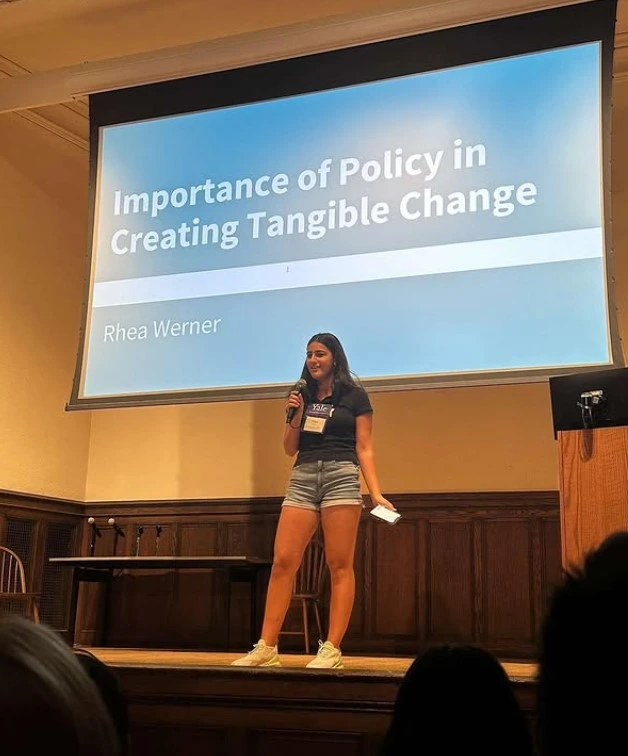

Rhea at the Yale Young Global Scholars Programme
She established Eudaimonia, a platform dedicated to addressing the systemic shortcomings she observed. By combining education and policy, the initiative focused on proactive prevention. “It’s about building a public health system that doesn’t wait for young people to fall into crisis but actively works to prevent that crisis from ever occurring,” she asserts.
The Harvard STRIPED Initiative
At just 15 years old, Rhea Werner got selected for the Harvard STRIPED Initiative, which proved to be the cornerstone of her advocacy. Being selected for the online programme meant waking up at 1 a.m. to accommodate time zone differences between the United States and Australia. The Strategic Training Initiative for the Prevention of Eating Disorders (STRIPED) is a programme of the Harvard T.H. Chan School of Public Health, designed to cultivate novel insights and strategies for prevention of eating disorders. It introduces trainees to transdisciplinary perspectives, methodologies, and theories and provide them with opportunities to join crosscutting collaborative teams.
As part of the STRIPED cohort, Rhea led the development of online youth surveys in Massachusetts and New York, which later influenced 10 nationwide legislative actions to ban diet pills linked to eating disorders.
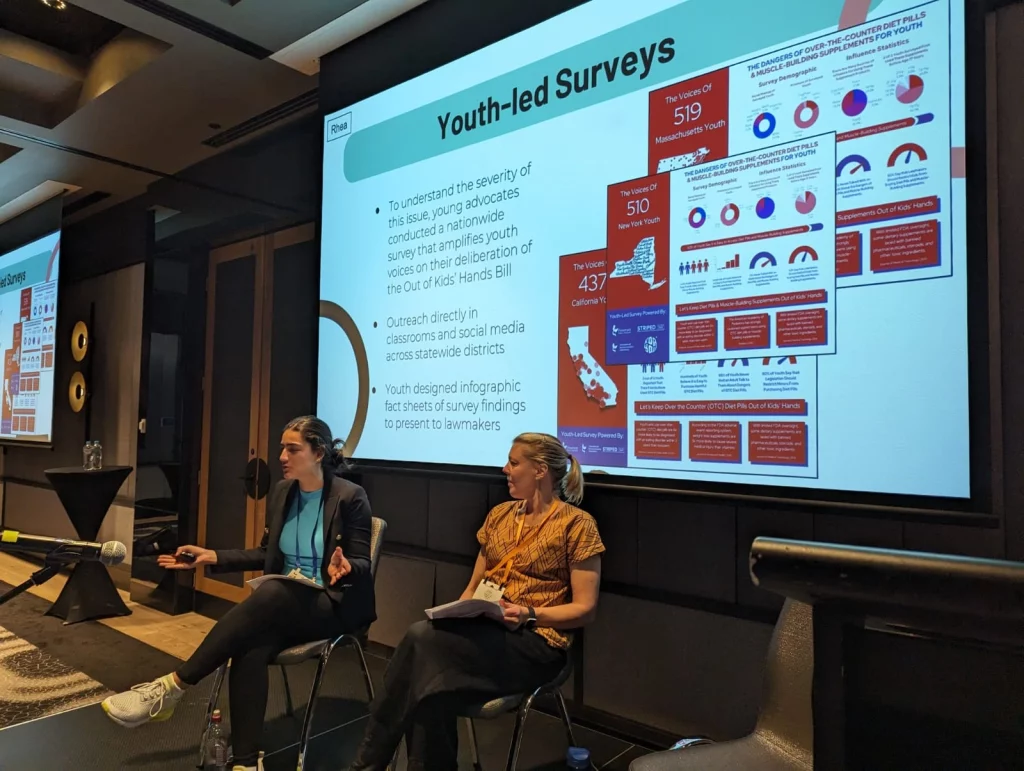

Rhea Werner at the Australia and New Zealand Eating Disorder Conference as the only youth presenter
While doing her international work, Rhea recognizing a lack of youth-led initiatives in Australia – the country she calls home, and founded the Embrace Collective Youth Initiative, collaborating with luminaries like Taryn Brumfitt, the 2023 Australian of the Year, and researchers at Melbourne University.
Pioneering change in Australia
One of Rhea’s most impactful achievements has been authoring the first-ever youth-focused, culturally attuned eating disorder education module. This module got later integrated into the Western Australian curriculum, impacting over 450,000 children. “Collaborating with Harvard to create this module ensures solutions are ingrained and sustainable, tackling the root causes rather than just the symptoms,” she notes.
Rhea’s advocacy extended further when she influenced the National Eating Disorder Strategy, securing $55 million in federal policies to support culturally and linguistically diverse youth. This included integrating Asian and First Nations perspectives into the Royal Children’s Hospital, in Australia impacting thousands of people.
View this post on Instagram
The youngster’s focus on cultural inclusivity doesn’t stop at policy. She ensured that educational materials reflected diverse backgrounds, enabling students from all walks of life to feel represented. “This effort is about more than education; it’s about giving young people a sense of belonging and understanding,” she says.
Youth empowerment and the body image summit
As head of the national Embrace youth team, Rhea Werner has collaborated with the Victorian Curriculum Assessment Authority (VCAA) to adapt health and education policies, addressing the harmful effects of Body Mass Index (BMI) practices on students. She has also led one of the world’s first body image summit, supported by a $50,000 VicHealth grant, which convened over 100 youth from across Australia.
The summit marked a significant step forward, uniting young voices to tackle body image issues. “Bringing together youth from different backgrounds helped highlight the universal nature of these challenges while fostering innovative solutions,” Rhea explains.
View this post on Instagram
A global voice: From the United Nations to rural Asia
Rhea’s impact transcends borders. Invited by the United Nations Major Group for Children and Youth, she presented her work at the 2023 Economic and Social Council (ECOSOC) Youth Forum, reaching 40,000 people. She has also made efforts to extend her education modules to rural India and Malaysia through local nonprofits addressing regional issues such as colourism’s impact on body image.
In rural communities, Rhea’s initiatives have led to enriching 790 educators and students, bridging gaps in understanding and creating dialogue around inclusivity. “Driving regional education about colourism has been deeply rewarding, knowing it can shift perceptions and empower youth to embrace their identities,” she shares.
Roots that shape a vision
Born in Germany to an Indian mother and a German father, Rhea’s upbringing was a rich blend of cultural traditions. She spent the first eight years of her life in Germany before relocating to Australia with her parents. “Growing up, my parents were deeply committed to giving me a holistic cultural upbringing. They never wanted me to feel like I had to choose between identifying as Indian or German. Instead, they celebrated both aspects of my heritage equally,” Rhea reflects.
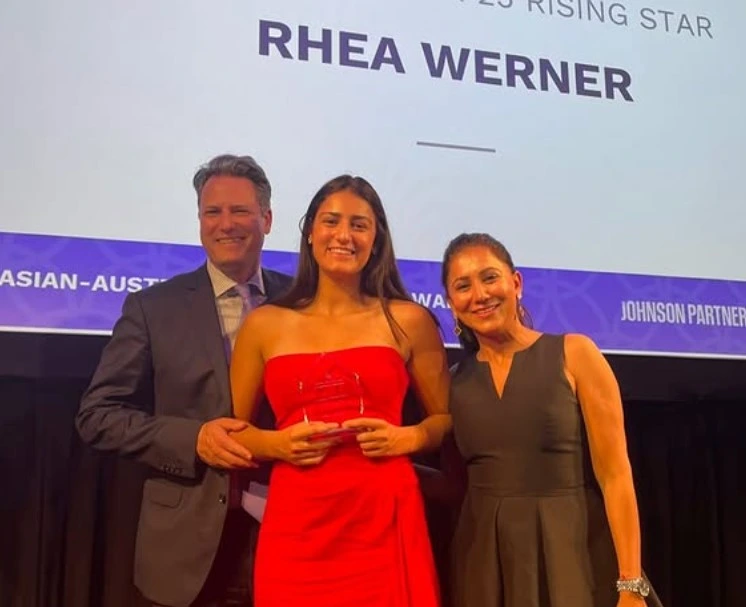

Rhea Werner with her parents
Her multicultural heritage became the foundation of her advocacy. “My Indian heritage, in particular, has had a profound influence on my worldview and my work. It allowed me to integrate perspectives from my heritage and ensure that young people from various backgrounds could see themselves reflected in these resources,” she shares. This unique perspective has driven her to embed cultural diversity into national strategies and education systems.
Rhea’s childhood was steeped in traditions that shaped her outlook. From celebrating Diwali and performing pujas to observing Christmas and Nikolaustag, her family’s inclusive approach helped her embrace diversity. “Knowing that my heritage not only shapes who I am but also inspires meaningful change in others’ lives has been incredibly fulfilling,” she says.
The backbone of balance
Balancing academics, activism, and personal life is no easy feat, but Rhea credits rowing as her anchor. “During the season, we are training up to 30 hours a week alongside school. Rowing has enhanced my immense appreciation for discipline and structure,” she shares. This disciplined approach allows her to manage her initiatives while excelling academically.
She also emphasizes the importance of collaboration. “I’m fortunate to have an incredible team of volunteers who share my passion for creating change. It’s not just about what I can achieve but about taking forward a collective vision where everyone feels empowered to make a difference,” she states.
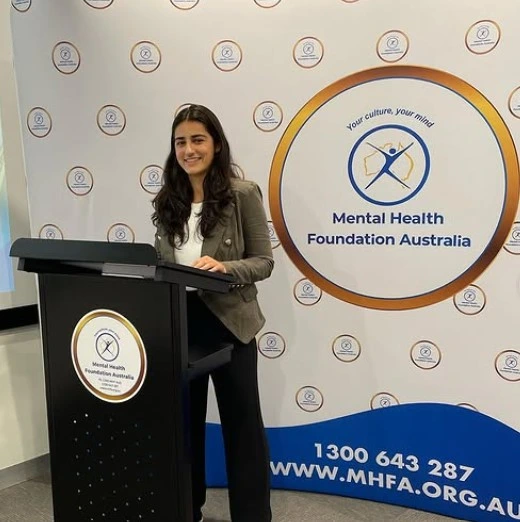

Rhea at the Mental Health Foundation Australia (MHFA)’s National Summit
Its all about creating change…
Rhea Werner’s aspirations extend to working in finance, focusing on healthcare and agriculture, upon completion of her studies at Harvard. “Through this, I hope to develop and support companies pioneering proactive healthcare and agricultural approaches. I also hope to further reconnect with my Indian roots by working in India,” Rhea envisions.
The most rewarding aspect of Rhea’s work lies in its ripple effect. “Knowing that these efforts inspire others to start their own initiatives and drive meaningful change makes every challenge worthwhile,” she signs off.

